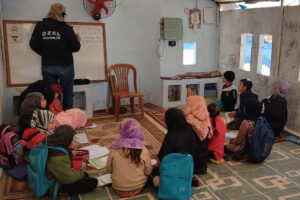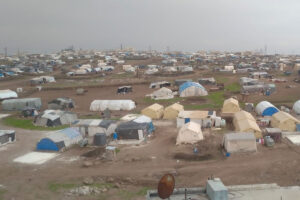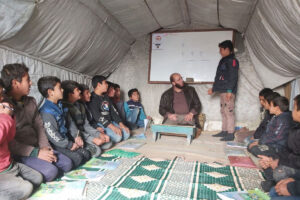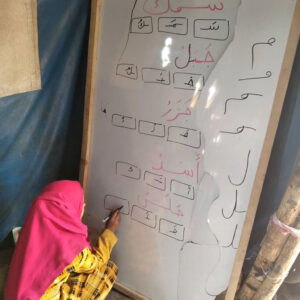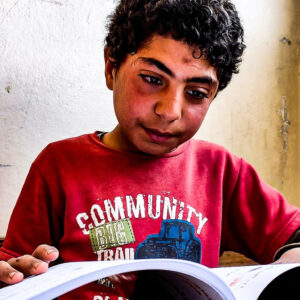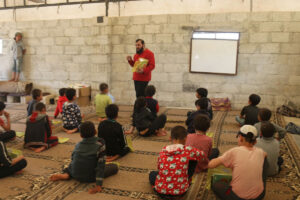
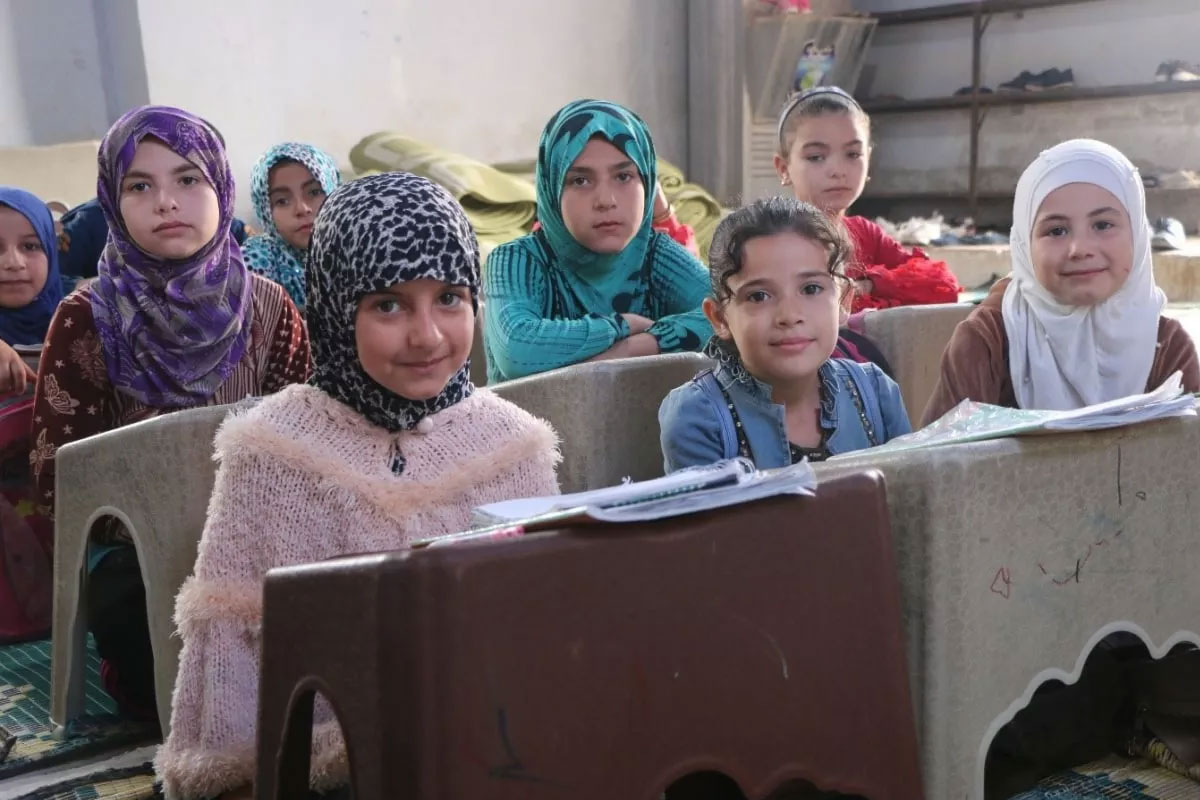
The conclusion of the fourth session of the literacy program
Several months passed in northern Syria, which made a big difference in the lives of many residents. Where children often went through a new experience for the first time, and they lived days filled with enthusiasm and suspense, which resulted in the lighting of many tents and houses that have been drowned in the darkness of ignorance and the unknown for many years.
By the end of the ninth month, there were more than 4,900 Syrian children shining with light and eager to reach the final day of the fourth educational course for literacy that is being held by the Humanitarian Development Aid Org. (Huda) in northern Syria, starting from Idlib to the areas of Raqqa. This course began in April 2022. It lasted for 6 months.
During it, Huda Charity established 172 classrooms in the regions of Idlib, Aleppo and Raqqa, supervised by teachers who were carefully selected based on their experience in illiteracy and dealing with displaced communities and children who drop out of education because of the special circumstances they are going through.
During this interesting journey, the students acquired a lot of knowledge and sciences derived from Huda’s educational curriculum, which includes all the basics of literacy, starting with the primary goal of learning the Arabic language to read and write until they became able to read and write everything they saw or came to their mind, including the Holy Quran, they also learned basic arithmetic operations to help them conduct their daily transactions easily. The curriculum also considers aspects of life skills and the promotion of values in the lives of children derived from the stories and tales of the Syrian culture.
What distinguishes Huda Charity programs is the high rate of female participations, as the percentage of female students reached 35.6% of the total participating students, and we seek to increase the attraction of girls during the upcoming sessions.
At the end of the sixth month of the training course, the final exams were conducted in reading, writing, and arithmetic operations, and it was announced that the students had overcome and conquered illiteracy, and started a new stage in their lives by joining schools close to the housing area, where the supervisors worked in Huda Charity to communicate and coordinate with the school administration to enroll students in the classes that appropriate to their academic age.

It is worth noting that the Syrian crisis left millions of children out of the educational process because of repeated displacement and the lack of schools and teachers, and because of the lack of funding provided to the education sector, which impedes its improvement.
However, this experience had a different and distinct taste, along with exciting aspects that I would not have experienced had I not joined the Huda Charitable Organization as a literacy teacher. Here, I traverse distances to reach my educational class, which is a tent where children, who have never set foot in a school, perhaps only knowing its name without ever visiting or imagining it, gather. They arrived at the educational tent, arranged themselves, eagerly anticipating learning and knowledge. How can I describe this feeling to you?
Success here has two facets. Firstly, exerting effort within the possible limits despite limited resources, and on the level of utilizing skills to deal with a group of children unlike any we have encountered before. They have not experienced school, their ages vary, and many of them suffer from clear psychological effects. Here lies the other aspect of success: discovering the skills and potentials God has blessed you with, skills and potentials you would not have known about if it weren’t for your work in the literacy program.
Surprisingly, you gain new experience here. Even though in your teaching journey you are accustomed to easily handling questions, here is a new path and a rich experience. Lectures and guidance from the supervisors at the Huda literacy program enriched my experience and honed my skills. I sensed success through a child who didn’t know how to draw the letter ‘Alif’ or hold a pen, but now writes and reads the Quran fluently.”

